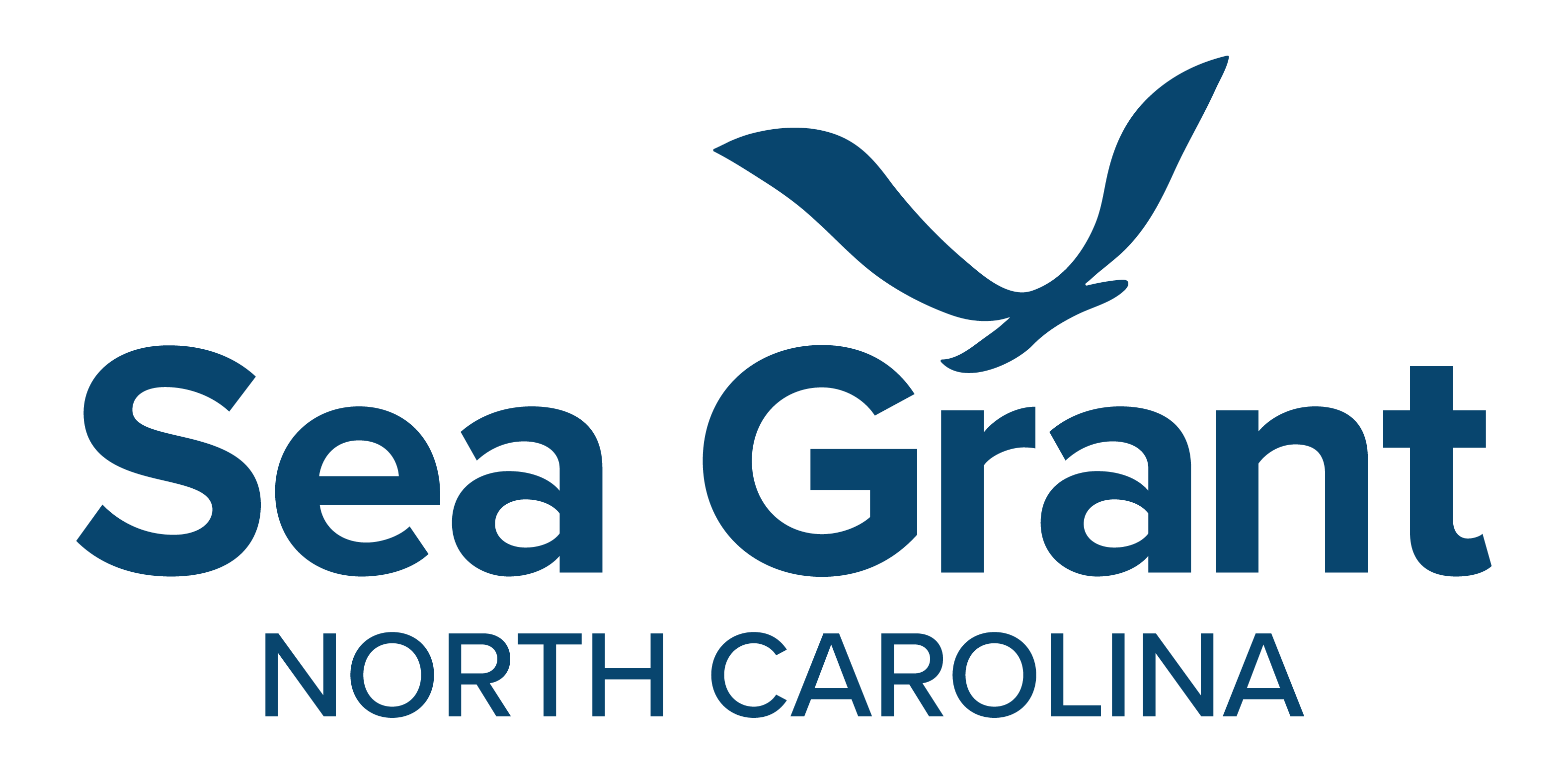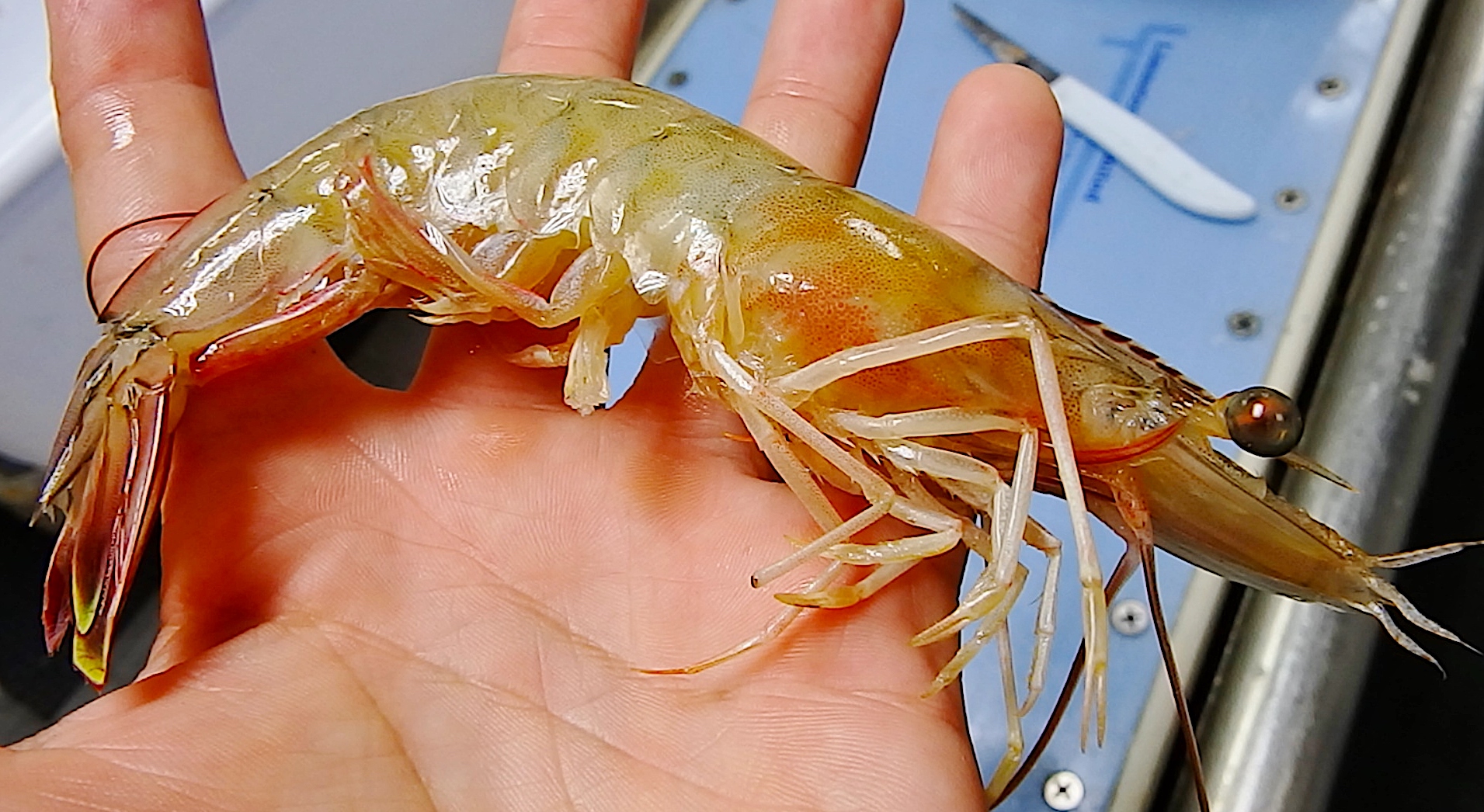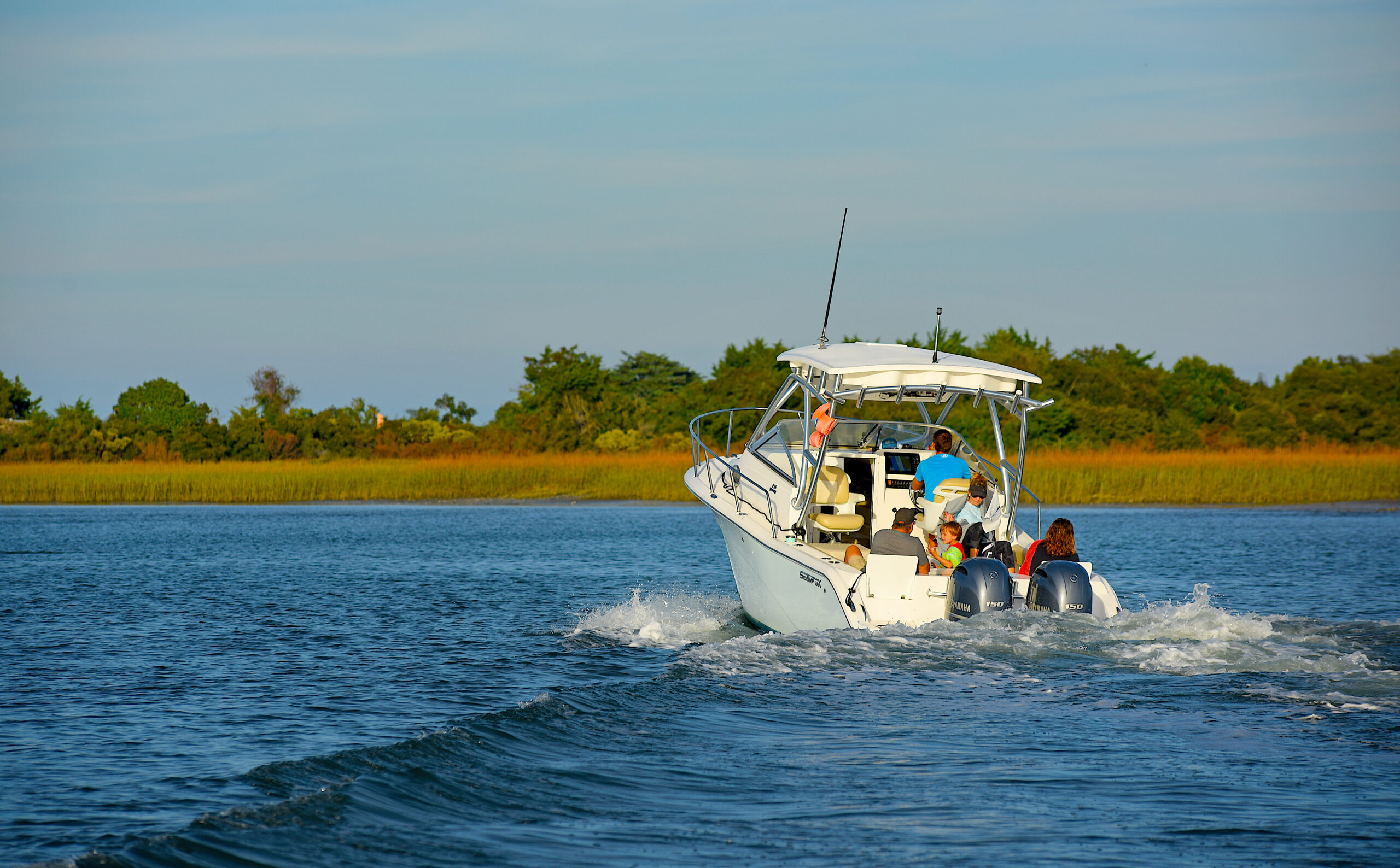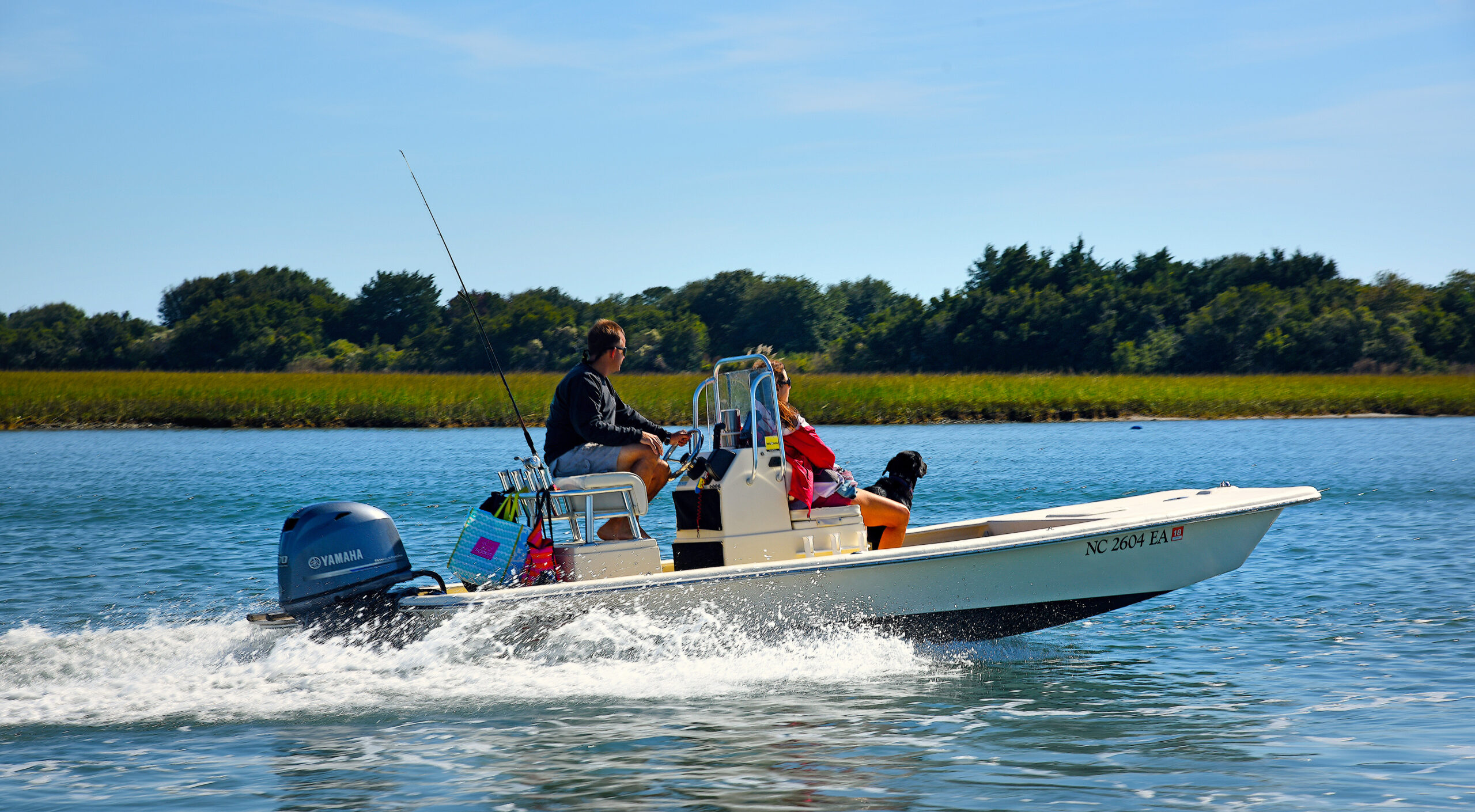Are Fishing Guides Role Models?
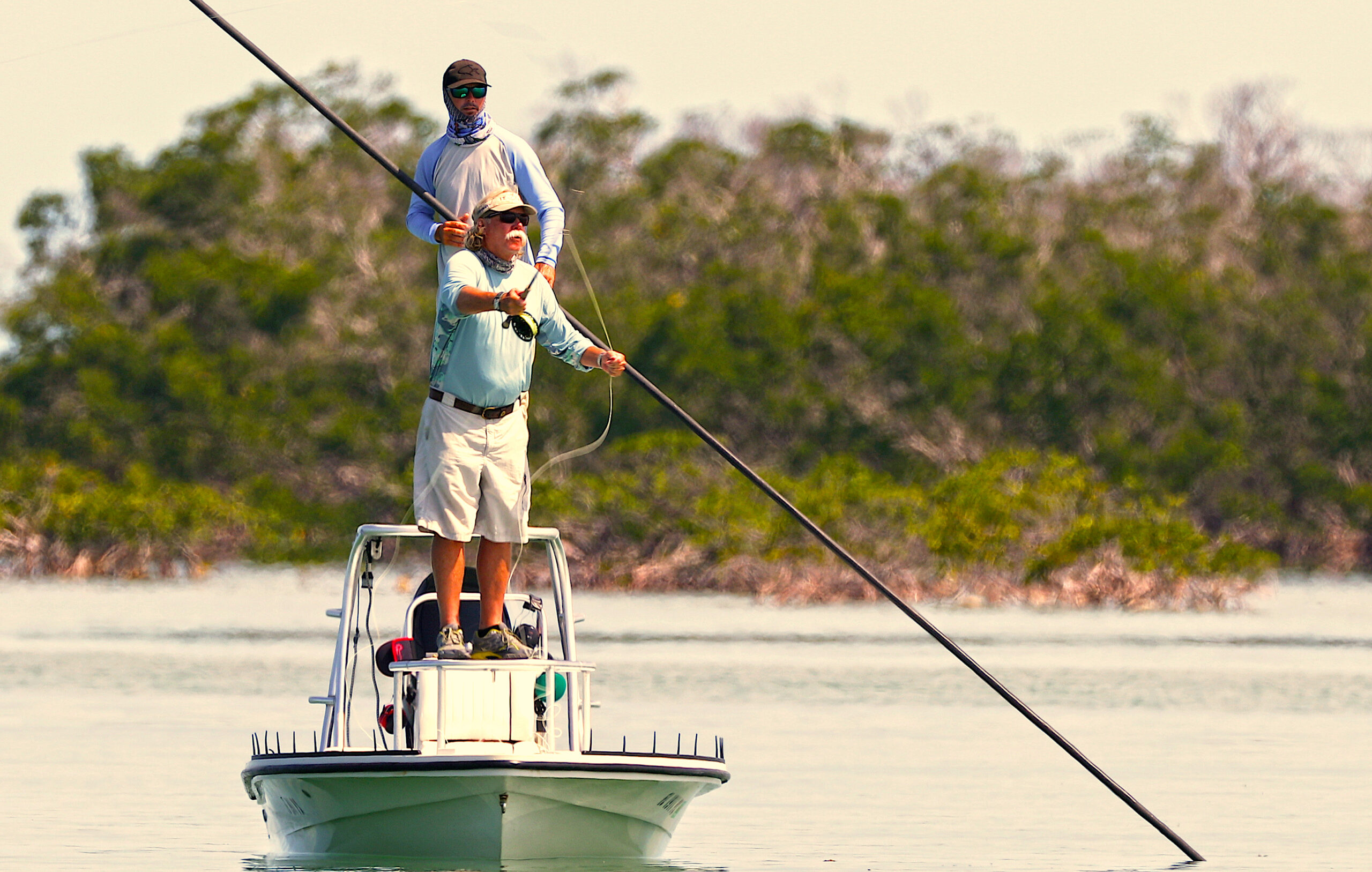
About 500 former clients of charter fishing guides weighed in on the issue.
For-hire fishing is big business in the U.S. — and particularly in the Southeast. North Carolina alone is home to more than 900 licensed saltwater fishing guides, whose customers cast a line in our estuarine and marine waters.
FYI, to better understand the educational interests and business needs of North Carolina’s for-hire fleet, North Carolina Sea Grant plans to distribute a questionnaire to all for-hire license holders in early November. The desired outcome of the effort is to design research, extension, and outreach efforts that support the business needs of the saltwater for-hire industry in North Carolina.
Research Need
Licensed fishing guides, who take people fishing for a fee, play an important role in recreational fisheries by providing access to a resource and activity that otherwise might be unavailable or unfamiliar to the public at large.
Successful guides have long been considered experts at catching fish, but of course they also provide customer service, so that clients have a memorable experience even if the fish aren’t biting. In other words, catching fish is only part of the guide’s profession.
But do fishing guides have yet another role to play? Specifically, do their clients view recent fishing guides as positive role models? If so, what impact does this have?
These are important questions, considering that fishing guides interact with hundreds — or, in some cases, thousands — of clients every year.
What did they study?
Scientists wanted to determine angler attitudes about their former fishing guides — including whether they were role models. But determining what makes for a good role model is not as simple as you might expect.
One theory suggests that successful role models often influence others and cause changes in behavior by performing three functions:
(1) demonstrating skills and competence to achieve a predetermined goal;
(2) encouraging new goals by increasing their attainability, and. finally,
(3) supplying the motivation required to pursue goals by increasing their desirability. Depending on the situation, some functions are more important than others.
With all this in mind, the research team designed and distributed a digital survey by email to known anglers through referrals, as well as announcing the survey to 77 self-identified fishing groups on Facebook.
What did they find?
A total of 492 former clients of fishing guides from 27 different English-speaking countries completed the survey. U.S. anglers accounted for 25% of respondents.
Roughly 9 in 10 respondents (91.1%) indicated that their fishing guides served as role models by demonstrating skills and competence to achieve a predetermined goal.
This means that the behaviors and mannerisms of fishing guides are likely to be repeated by clients. When you consider the number of interactions that fishing guides have with clients each year, this finding is particularly significant.
Clients were less likely to refer to fishing guides as encouraging new goals or supplying the motivation required to pursue goals (54.8%). The authors suggest that this is not surprising, considering the context of the angler-fishing guide relationship.
So what?
The authors state that in our digitally connected age, the influence of fishing guides through social media platforms reaches much farther than former clients. Fishery managers should capitalize on the popular opinions of fishing guides as role models and work directly with them to communicate best fishing practices to their large audiences.
Reading
Farthing, MW, AR Childs, JB Mann-Lang, CS Bova, and WM Potts. Are recreational fishing guides role models for their clients? Fisheries Research 254 (2022) https://doi.org/10.1016/j.fishres.2022.106408
Funding provided by the National Research Foundation and the Rhodes University Research Council.
By Scott Baker
Lead photo by Nick Zachar/NOAA.
The text from Hook, Line & Science is available to reprint and republish, but only in its entirety and with this attribution: Hook, Line & Science, courtesy of Scott Baker and Sara Mirabilio, North Carolina Sea Grant. HookLineScience.com.
